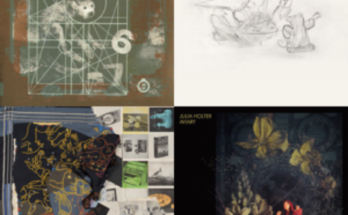Buzz: There is an obvious ’80s influence throughout the album, which I think is pretty fresh. Can you explain why you went this route?
Blueprint: I decided that as an artist, I was starting to care a little bit too much about being different and progressive, as opposed to executing the art and making good songs. Most of the stuff in ’88 or prior was made with much less equipment, but in my opinion it was more creative and had a more fun vibe to it than today’s music, so I decided to try to take that approach and apply it to today’s music. When I started getting good feedback about what I was doing, I decided to keep going and make an entire record.
Buzz: Who were major influences to this project? I think I can hear Marley Marl in there….
Blueprint: Definitely Marley Marl. Public Enemy and The Bomb Squad, Biz Markie, Big Daddy Kane and Boogie Down Productions.
Buzz: How do you have time to run a label (Weightless Recordings), produce beats and emcee? Got an extra arm?
Blueprint: I have no idea. It’s extra difficult sometimes, but growing up I was a kid that always had to have a bunch of different things going on to be happy, and I’ve stayed that way as an adult. I just try to always keep moving forward and hopefully my activity will pay off.
Buzz: Most listeners will know you from your work as Soul Position with producer RJD2. What is it like taking on the production responsibilities for an entire album to go along with all the lyric writing? How is your creative process different?
Blueprint: There’s a lot more pressure on me to come up with good production with this record but at the same time there’s more of a reward if people like it. This is probably the first real representation of what I can do as an MC and as a producer. My process was much different for this record because half of my time was spent looking for old sounds and drum breaks that were popular back then and finding find a way to rearrange them.
Buzz: This album comes out on Rhymesayers instead of your own label. Is this to diminish the amount of hats you have to wear in the fruition of the project? How has working with Rhymesayers been?
Blueprint: It’s to reduce the amount of pressure on me. It’s very difficult dedicating yourself as an artist to the point where you can really promote your record, and it’s even more difficult to try to do the administrative part as well. I didn’t think it would be in the best interest of the record for me to try to do much. Rhymesayers has always been good to me.
Buzz: Of all the songs on 1988, “Liberation,” the song that ends the album, stands out the most to me. It doesn’t have the straightforward ’80s vibe found on other songs, it’s over five minutes long and covers a falling-out from your past. Could you give us some insight into this song?
Blueprint: I made an effort to make the album get more and more progressive as the album continued so that people wouldn’t feel too alienated by the ’88 sound, especially if they didn’t grow up on it, which is why “Liberated” sounds so different and why it’s the last song on the album. It’s one of those songs that’s about expectations of you that are made by others and how it takes conflict to break us free and make us stronger. Every artist that has had their music evaluated, whether that be praise or criticism, has had to come to terms with other people influencing what they do. I’ve went through it myself, so I wrote a song about breaking free from all that.
Buzz: So what’s next for Blueprint?
Blueprint: I’m actually working on writing the next Soul Position album right now. RJ sent me a bunch of beats, and I’ve been writing since January. I want to have most of it recorded by the end of the summer. After that I might do another Weightroom record or another instrumental record.
Blueprint appears at the Highdive with Illogic this Thursday (9 p.m.) as part of UC HipHop’s celebration of Hip-Hop Awareness Week. For more information, check out uchiphop.com.



